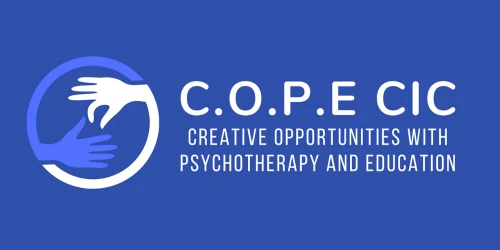How can therapy and exercise reduce violence in communities?
On 19th July 2023, we had an opportunity to be part of an event bringing together Voluntary Community and Social Enterprise (VCSE) organisations across the ten boroughs of Greater Manchester to contribute and share opinions about tackling violence in Greater Manchester. The conversations that took place will hopefully assist in developing Greater Manchester's first Violence Reduction Strategy.
This event has inspired us to reflect on how therapy and exercise can reduce violence and what impact we can have as an organisation.
Therapy and exercise can play essential roles in reducing violence in communities by addressing underlying psychological issues, promoting emotional well-being, and providing healthy outlets for stress and aggression. Here's how each of these interventions can contribute to violence reduction:
Therapy and Counselling:
Anger Management: Therapy can help individuals understand and manage their anger and aggression in healthier ways. It allows them to identify triggers and develop coping strategies to prevent violent reactions to challenging situations.
Conflict Resolution: Teaching conflict resolution skills through therapy can lead to more peaceful ways of resolving disputes, reducing the likelihood of violence in response to disagreements.
Trauma Healing: Many individuals who engage in violent behaviour may have experienced trauma in their lives. Therapy can help them process and heal from these traumas, reducing the likelihood of acting out violently to cope with their past experiences.
Empathy Development: Therapy can foster empathy and emotional intelligence, helping individuals understand the impact of their actions on others, thus making them less likely to resort to violence.
Exercise and Physical Activity:
Stress Reduction: Regular exercise can reduce stress and anxiety levels, often linked to violent behaviour. Physical activity helps release endorphins, improving mood and overall emotional well-being.
Positive Outlet for Aggression: Exercise provides a safe and healthy outlet for releasing pent-up aggression and frustration, and participating in sports, martial arts, or other physical activities channels energy into constructive pursuits.
Social Interaction: Group exercise activities can foster a sense of community and belonging, reducing feelings of isolation and disconnection that might contribute to violent tendencies.
Self-Discipline: Committing to an exercise routine requires self-discipline and can help individuals develop self-control, which can also be applied to managing anger and aggressive impulses.
Combining Therapy and Exercise:
Integrating therapy and exercise can be particularly beneficial. Exercise can serve as a supplement to therapy, reinforcing positive changes made during counselling sessions.
Group therapy sessions combined with group exercise activities can create a supportive environment for individuals to connect with others who may have similar experiences or struggles, fostering a sense of belonging and reducing social isolation.
COPE CIC Programmes :
At COPE, we identify that combining therapy and exercise can be specifically designed to support individuals at risk of violence or those with a history of violent behaviour.
Collaborating with schools, community centres, and local organisations to offer these interventions can reach a broader audience and significantly impact violence reduction in the community.
It's important to note that while therapy and exercise can be valuable tools in reducing violence, addressing community violence requires a comprehensive approach that involves other factors like education, poverty alleviation, access to resources, and addressing systemic issues that contribute to violence in the first place.

